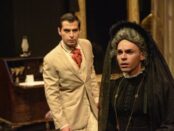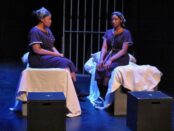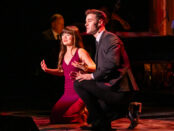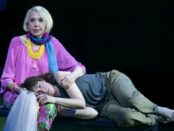Now Comes the Fun Part
The revue alternates between skits by James Hindman and Lynne Halliday and songs with music by Jeffrey Lodin (who is also the music director at the piano) and lyrics by Mark Waldrop, the intrepid director. While the material is diverting and entertaining, it feels derivative rather than original. There appears to have been an attempt to not offend anyone so that everything is rather low key and tame. Some of the tropes though pertinent have already been dramatized: “To You, My Friend,” sung by two women at a college reunion, resembles but feels like a pale imitation of Jerry Herman’s “Bosom Buddies” while “Gonna Get the Band Together” suggests the 2018 Broadway musical with a similar name. “Reunion” in which two old friends reminisce has too much the feel of a "Saturday Night Live" skit. [more]

































